Episode 171 – A Chat With Benjamin Zekavica and Moritz Bappert

Podcast: Play in new window | Download
Subscribe: RSS
Topher and Sophia met with Benjamin Zekavica and Moritz Bappert, both WordCamp Europe 2023 volunteers.
Show Notes
Episode Transcript
Topher: Hey everyone! Welcome to Hallway Chats. I’m Topher and my co-host is Sofia.
Sophia: Hello.
Moritz: Hi. Nice to meet you.
Benjamin: Nice to meet you two.
Topher: It’s great having you here. Once again, our guests are from WordCamp Europe. Please tell us your names and what your role is for WordCamp.
Benjamin: I’m Benjamin. I’m 24 years old, and I’m a volunteer here at the WordCamp. I am the photographer and photographer organizer to take the picture from the SD card to the computer and to give it to the social media team. And I’m really happy to be here today.
Topher: Great.
Moritz: So my name is [Moritz? 00:05:05] and I’m here for the second time on WordCamp Europe, first time as a volunteer. So I’m excited about that. I was on the sponsors team today, helping the sponsors with everything they needed. And one more shift that I have is as a speakers assistant, so calming down the speakers before their speech, and then guiding them to the stage, and helping with anything else.
Topher: Cool. Did you say this is your second WordCamp? Europe?
Moritz: Yes. I’ve been at one in Berlin in 2019.
Topher: I was there. And Benjamin, it’s just your first WordCamp Europe?
Benjamin: No, it’s my second. I was also in Berlin.
Topher: I was there too.
Benjamin: My volunteer is now first time and I’m really happy to be here. Because after COVID it’s now a freedom to have again here with much people to communicate and so on. I’m really happy to have our life back.
Topher: Yeah, yeah. So where are you each from? Where do you live?
Moritz: I’m from the Black Forest area in Germany at the very southwest, bordering France and Switzerland.
Topher: All right.
Benjamin: I live in Aachen. It’s near Cologne. It’s wonderful, small city.
Topher: Very nice. It’s morning for us. I don’t want to say early morning anymore because I don’t want to seem like I don’t get up early. But it’s midafternoon of day two for you. How’s it been? Are things going well? Is it smooth? Having fun?
Benjamin: I think we are a little bit tired. Now it’s okay. I think it’s completely good for us to work, I think, four hours, if not more, and it’s really good for us. It’s not the full day. And you can choose your shifts. It, for me personally, was relaxed and good. I was really happy because to see the attendees. I was really happy with the speakers that was known for more different things and learned other new technical things. I am really proud about that.
Topher: That’s cool.
Moritz: For me, it’s really exciting in that way. Of course, it’s also exhausting because I’m talking to so many inspiring people and I’m like all over the place. I’m having lots of fun. The party yesterday night was nice. There’s gonna be a party too this night and tomorrow night. So it’s a lot. You need to see how you’re managing everything. But yeah, I’m just here for meeting so many interesting people. And I’m having a great time. It’s amazing.
Topher: Great.
Sophia: Nice.
Topher: You’re on, Sophia.
Sophia: What?
Topher: You’re on.
Sophia: What made you both seek a role in the WordCamp organizing team?
Moritz: For me, I was really interested to get involved more, to talk to more interesting people, to just put myself out there. For example, as a speakers assistant, I have the great opportunity to directly get in touch with some of them. We also get invited to the social last night to the party with all the sponsors and speakers, organizers, and so forth, which was really nice, and many interesting people around. So I think it’s a great opportunity. On the one hand, giving back and investing our own work and effort into a great event. And on the other hand, you also get recognition for it. And it’s lots of fun, you get to know other volunteers.
Sophia: Yeah, for sure.
Moritz: So great experience. Definitely gonna do that again.
Benjamin: Repeat it again. I want to add it’s really nice experience because some people, some volunteers, it’s so much problems and I could help them and they could help me. In general, we say you give it and you get it back. It’s a really nice thing what you can expect to be a volunteer. My first time and I was a little bit here, I say, Okay I don’t know if I want to apply for volunteer role because people say it’s so difficult because the English is maybe not so well. But I think here all people want only one thing—to learn and to grow our community. And that makes me so happy.
Sophia: Yeah, absolutely. How has the reality of how WordCamp Europe is now…? Like after the organizing, how has that compared to… Gosh, let me rephrase that. So after having organized WordCamp Europe, and this is now day two, how is it going? Like how does it compare to how you hoped it would be?
Benjamin: I can say I work here as a contributor for WordPress Core and community team and it’s more online basis. But I think here and volunteer, it’s also nice to meet the people directly here and to help to make the WordCamp better. And if we have more volunteers, then it’s easier for all organizers to organize all good things to make the WordCamp better. And it is important because without volunteers it’s impossible to make the event.
Moritz: I mean, I guess what you were asking is also, like, is this event in any sense different from how events work during COVID? I don’t feel that way. For me, it really feels like any event before. It’s been like lots of people. We have great parties. So there’s not any restrictions on that. And I don’t see that people are hesitant in meeting so many people. So it’s really feeling like getting back to normal somehow and feeling great.
I think COVID didn’t really impact this in any negative way. And probably we even learned some things from that and we’re able to improve stuff. So I’m really happy to have in-person events again. And it’s so valuable to really meet people in person and talk to them directly. For me, even as I’m doing much of the stuff online and working remotely, quite often it’s a different feeling. You get different depths really of interactions with all the people.
Topher: So volunteering and organizing is a lot of work. It is different from just being an attendee. You’re not free to just wander around and shake all the hands and eat all the snacks. Would you do it again? Is volunteering better than just being an attendee? Or would you value not having responsibility?
Benjamin: I will say yes because I want to come again here and to the next WordCamp because all people wanted to be involved and to help the community to grow up. I think the part is volunteering you have much more exercises to do and you have to help other people. It’s sort of a bit different because you are completely a visitor. But you can also join the community and so on. But like the volunteer, you have more permissions, you can ask directly people to make maybe the next WordCamp better maybe and say directly your opinion to make the next events… The problems was not again to do that. That is a good thing because as well as volunteer you have more to speak out directly to the organizer.
Moritz: That’s the point that I see as well, just like being closer at the center of really what goes on behind the event and inside organizing everything. For me, it’s really interesting to see that and to get more involved and to talk to the people behind the scenes, like, either the organizers themselves or speakers, for example. As a normal attendee, I feel more isolated, of course, I can go and talk to lots of people. But as a volunteer, I really feel more as part of the whole. It lets me connect easily with many people, people approached me seeing me in my volunteer t-shirt.
Somehow, you’re also one face of the whole event, so to say, and it feels good. I really enjoy doing my little part to help make a successful event, and this way also getting in touch with much more people. Of course, you have to do your small tasks, it takes some time. You don’t go to so many sessions, but I really value talking to people and doing all the related tasks. So I don’t regret missing any of the sessions also.
Benjamin: To add one more thing, I think the good thing as a volunteer, you have a team of mature people. And so it’s funny because all people work together. And we are a team. And that makes me so happy because we have direct communication and work together and that makes your experience much higher. And it’s one thing why I really love to be a volunteer today in this event here.
Topher: Imagine for a moment you’re talking to someone who has been to four or five local WordCamps, small in their city or maybe another city, but just small camps. What’s different about WordCamp in Europe?
Benjamin: I think we have same opinion of that I think it’s the huge people here, so many people here. It’s a bit difficult because they have more to organize. It’s a bit smaller group. And it’s a bit easier maybe for the organizer, for the volunteers to coordinate, to see how it works. But here is a little bit bigger, much more attendance was here. It’s a little bit stressful. A little bit.
Moritz: I agree. It can be overwhelming, I think. But still there’s so much opportunity because all the people from every place in the world that engage in WordPress topics somehow are here. And you can talk to anyone we have, with any WordPress company you could imagine. It’s so nice.
Like I’m working as an agency with two co-founders and we’re in that since seven years, so we’ve seen lots of plugins and stuff and some blogs of developers or other things that we find useful. This is the place where you can really meet all of those people in person. This is something that is really satisfying for me to talk to them in person, get to know them.
Topher: Personally I really value that myself—getting to know people on a personal level is… It’s not just WordPress, I’ve experienced it in the whole open source community. I’m a Linux guy, I’m a Mozilla guy, you know, the PHP team, they’re all very open like this. And to be able to just walk up and shake the hand of someone who built something that you use every day it’s amazing. It’s impressive. It’s really cool.
Moritz: Yeah, I agree.
Topher: All right, I want to open it up to you two. I don’t have all the questions and all the answers. I’m not there. Is there anything you’d like to say about your experience, about WordCamp, something you wish I’d asked you? No, is an acceptable answer.
Moritz: Let me think. I think most of the points I already covered. I mean, it’s really impressive to meet so many cool people, having really great time.
Topher: Let me ask this then. I’ve had some a number of conversations with people in the last couple of weeks about the multilingual aspect of a thing like WordCamp Europe and particularly how mentally taxing it can be to try to communicate across not just one language but 10 or 20, or 30, you know, and all the variety of accents, some are thicker, some are not. How’s it been for you? Yes, I’m assuming that English is pretty common language on the floor at WordCamp. You both speak wonderful English. But how are you doing with people who don’t speak wonderful English or German or anything, you know? What’s it been like for you?
Moritz: Well, to be honest, all the people I met up to now were able to communicate well in English with me. So that wasn’t really a problem. I mean, for me myself, it’s exhausting. And I’m much more tired in the end of the day as I would be compared to talking the whole day in German, which is already tiring. But doing it in English is even more… But it works. And everybody is making a good effort to be open and communicate, which is mostly English. And, of course, we’re also meeting people from Germany you’re talking to. But yeah, 90% of my conversations have been in English today.
Topher: All right.
Benjamin: English is the language here. I’m born in Germany, and my parents are from Serbia. And the funny thing is there are more Serbians here. And for me, it’s really nice to talk with them in Serbian language, because it’s so nice to see the other people talking other languages. And yes, we can speak all languages as that possible directly. But with English we also were happy because my English is not so well but I try to learn it more better. I only can say it’s important that we have what was happy and understand a little bit. But I say sometimes you don’t need something to say. If one smile, it’s enough.
Topher: Yes, yes. Something that the WordPress community has taught me, has given me is an appreciation for everybody in the world who has learned English so that I don’t have to learn their language. People all the time say to me, “I’m sorry for my English.” And I say, “Boy, I’m sorry, for my version of your language because you don’t want to hear it.” I appreciate. You do not want to hear my German. So I appreciate greatly anyone who takes the time to learn a language that I speak—the only language I speak. So I express that to you now. Thank you. Thank you for taking that time to learn English and be able to be here with us today.
Benjamin: Yeah, nice.
Topher: I don’t have any more questions. Sophia, do have anything?
Sophia: I do not.
Topher: All right. Then I just have a little thing to read here and then we can wrap up.
This has been an episode of Hallway Chats, a part of the HeroPress Network. Your hosts were Sophia DeRosia and Topher DeRosia. We’d like to thank Sophia for the music and Nexcess for hosting our network.
If you liked the episode please subscribe and mention us on social media!
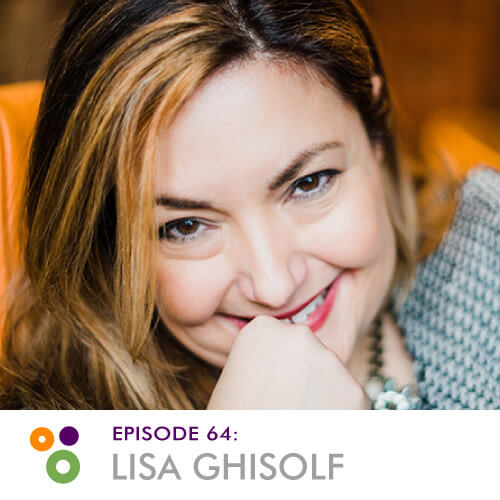
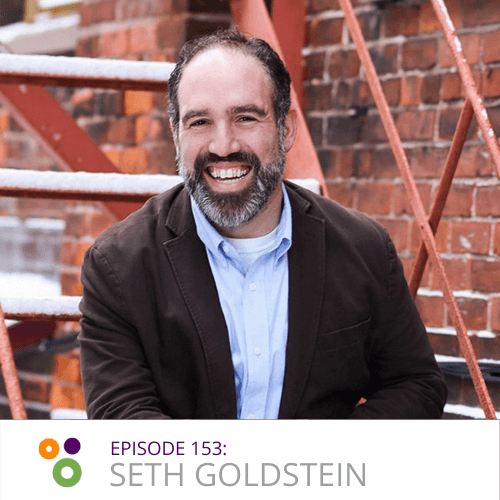
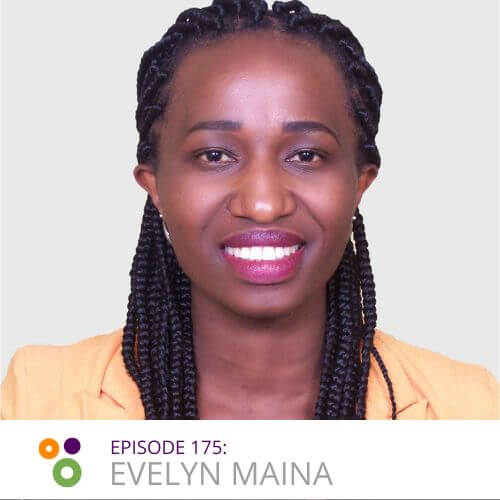
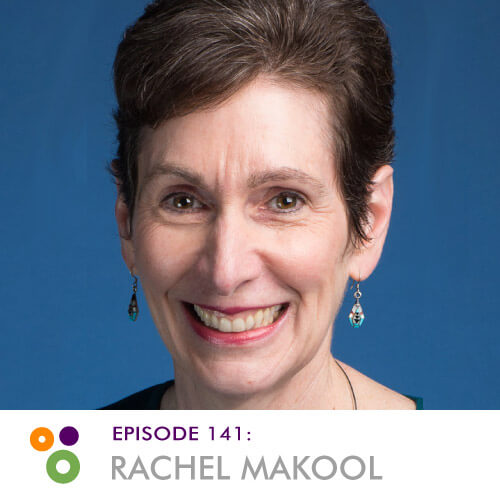
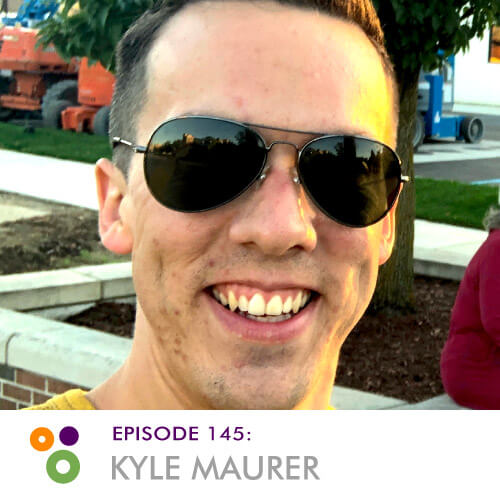
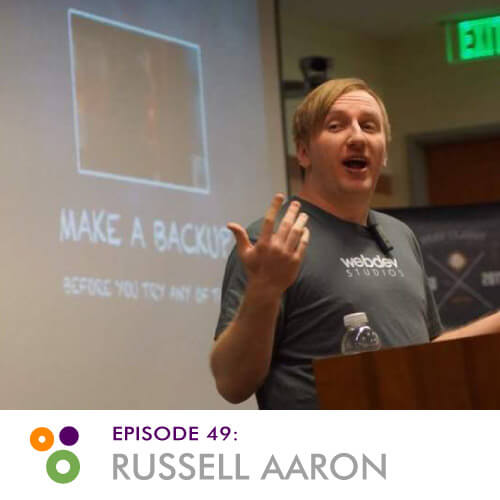
One Comment